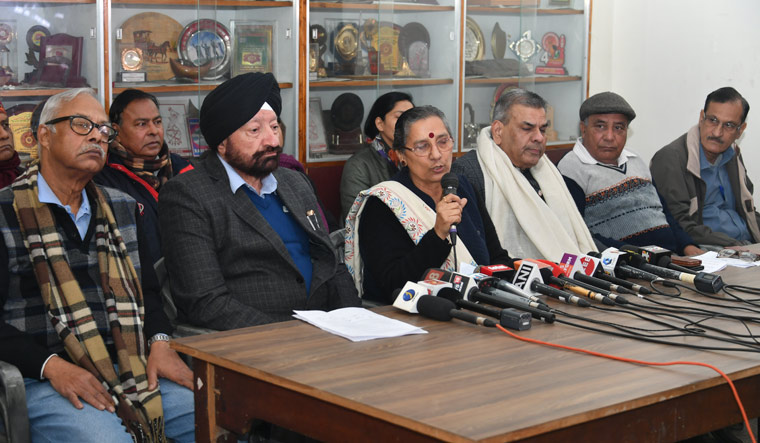The 10 Central trade unions that have called for a 48-hour general strike against the economic policies of the Narendra Modi government on Tuesday and Wednesday have announced they would organise road and rail blockades nationwide in addition to street protests.
The trade unions issued a press communique about their plans for the 48-hour general strike on Monday. The trade unions organising the strike are INTUC, AITUC, HMS, CITU, AIUTUC,TUCC, AICCTU, SEWA, LPF and UTUC. On Friday, a CITU leader told THE WEEK that more than 14 crore workers would participate in the 48-hour general strike.
The press release by the trade unions claimed the preparations for the general strike had received support from all sections of society. The general strike was expected to see participation from unions in the banking and insurance, mining, petroleum, Postal department, telecom, steel, education, defence and various other sectors.
The press release added workers in the unorganised sector were also preparing for “massive strike action” during the general strike, planning “rasta roko, rail roko-type of agitations, along with massive mobilisation”. Railway unions have also expressed support for the general strike.
The press release added unions of workers in agriculture, plantation, hawker-vendors and other sectors were also mobilising for the general strike.
The All India Bank Employees Association (AIBEA) and Bank Employees Federation of India had announced they would participate in the general strike, raising the possibility of disruption of operations in public sector banks. Allahabad Bank and Bank of Baroda had warned of possible disruption to services, while private-sector Karur Vysya Bank warned that some of its employees may also participate in the general strike.
The Central trade unions alleged the Modi government had been pursuing anti-labour policies and “refused any dialogue” and had not held the Indian Labour Conference for more than three-and-half years. The trade unions also alleged the Modi government was making “pro-employer changes” in labour laws and attempting to “usurp” funds in various welfare boards in the name of providing “universal social security”.


